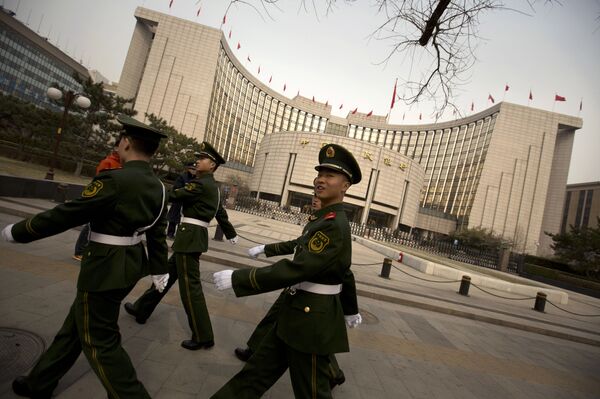The price of Bitcoin skyrocketed Friday night, surging by nearly 40 percent from a recent low.
The cryptocurrency cracked $10,000 briefly, a symbolic threshold the digital currency has not reached in over a month, before falling again to around $9,000 on Sunday.
Bitcoin has had something of a volatile week, as on 23 October the price of the world's best-known virtual currency dropped more than 7 percent to $7,412, its lowest since the middle of May.
Meanwhile, the global average price, as calculated by CoinDesk’s Bitcoin Price Index, clocked a high of $10,332.
The current sharp turn in bitcoin's price came as Chinese President Xi Jinping spoke highly of the decentralised technology on which the digital currency is founded, reported Xinhua News Agency.
Xi told members of the Political Bureau of the Central Committee that the country should "seize the opportunity" of blockchain.
"[We must] clarify the main direction, increase investment, focus on a number of key core technologies, and accelerate the development of blockchain technology and industrial innovation," underscored Xi as part of an 18th collective study of the Political Bureau of the Central Committee on 24 October in Beijing.
Xi Jinping said blockchain technology has a wide array of applications within China, listing topics ranging from financing businesses to mass transit and poverty alleviation, insisting that testing of the tech should be widespread, including the investments in training platforms and “innovation teams” before implementation.
Media reports are underscoring that Chinese President Xi Jinping’s speech may have suggested to investors that a potentially expansive consumer base for cryptocurrency could begin to open up.
Xi's comments are believed to be among his first to embrace blockchain technology in-depth.
Earlier, in August this year, Mu Changchun, a deputy director at the People's Bank of China, said at an event sponsored by the China Finance 40 Forum that the country is "close" to releasing its own cryptocurrency.
The bank has apparently been working on such technology since 2018.
The official did not elaborate about when the Chinese state digital currency will be released.
The PBOC stated in August that it plans to “expedite the research of China’s legal digital tender”, keeping an eye on cryptocurrency development both abroad and at home.
The Chinese central bank has maintained a tight grip on cryptocurrency since banning ICOs (Initial Coin Offering) from being held and bitcoins and similar currencies from being traded in September 2017.

At the same time, China has been considered one of the key digital coin markets, with some reports suggesting that it houses 80% of cryptocurrency mining output thanks to cheap electricity in the country’s coal-rich Xinjiang and Inner Mongolia regions.



